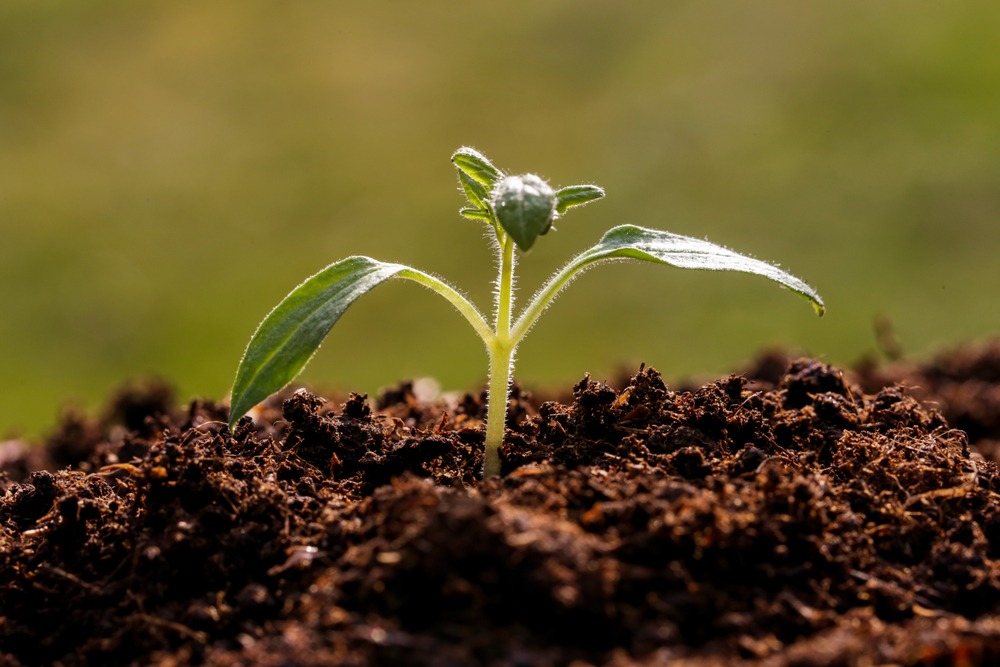Living Soils of the Americas is an initiative that links science, public policies, the private sector and work to rehabilitate the Hemisphere’s degraded soils, which are threatening the position of Latin America and the Caribbean as the guarantor of the world’s food security.

San Jose, 14 January 2022 (IICA) – Canada, Colombia, El Salvador and Peru have come on board the Living Soils of the Americas initiative, spearheaded by the Inter-American Institute for Cooperation on Agriculture (IICA) and the Carbon Management and Sequestration Center (CMASC) – an entity led by decorated scientist and 2020 World Food Prize laureate, Rattan Lal. This will further strengthen the coalition that is tackling the degradation of a resource that is essential for health and life.
The admission of these latest entrants was formalized by way of official letters sent to IICA by Agrifood Canada, the Ministry of Agriculture and Rural Development of Colombia, the Ministry of Agriculture and Livestock of El Salvador and the Ministry of Agricultural Development and Irrigation of Peru.
Living Soils of the Americas is an initiative that links science, public policies, the private sector and work to rehabilitate the Hemisphere’s degraded soils, which are threatening the position of Latin America and the Caribbean as the guarantor of the world’s food security. Bayer, Syngenta and PepsiCo are private sector members of the initiative, which already had countries on board such as Brazil, Chile, Mexico and Uruguay.
Employing management best practices, the program interconnects technical cooperation, governments, international organizations, universities, the private sector and civil society organizations to assist in slowing down land degradation and agricultural processes that are depleting the organic matter in soils, a natural resource that is fundamental to life.
“Agri-food Canada is looking forward to sharing our experiences and learning from our North American and South American partners through this initiative, with a view to promoting the soil health agenda and transforming the region’s food systems to make them more uniform and more sustainable”, said Gilles Saindon, the organization’s Assistant Deputy Minister. Canada has already implemented concrete actions to promote an agenda to enhance soil health, specifically through public policies.
IICA and CMASC are promoting Living Soils of the Americas and advocating for the adoption of land management practices and incentives to transform agricultural systems into ecosystems that retain more carbon in the soil; to implement the best management methods; and to develop public policies and regulations to restore soil health and quality, as fundamental premises.
Moreover, IICA and CMASC, in adopting the postulates, teachings and findings of Lal, view soil health and quality as elements that are critical to peace and the institutional stability of countries and regions.
An article by researchers from Stanford University, published in the PLOS Biology journal, ranked Lal—who is also one of IICA’s Goodwill Ambassadors—as the world’s most influential scientist in the field of agriculture and agronomy.
The initiative also aims to strengthen the position of Latin America and the Caribbean as one of the major food producing and exporting regions of the world, which will require it to improve its soil quality as an essential element in increasing the world’s food and nutritional security. Nutrient-rich soil also helps to mitigate the damaging effects of climate change.
Juan Gonzalo Botero, Colombia’s Deputy Minister of Agricultural Affairs, remarked that, “We, at the Ministry of Agriculture and Sustainable Development, are honored to place our public policy results at the disposal of the entire Hemisphere, through this joint IICA-CMASC initiative, in a bid to drive this agenda and transform the model of the region’s agrifood system to become more sustainable”.
Mario Antonio Giolitti Torres, Director of Cooperation and Trade of El Salvador, and Jesús Ruiton Cabanillas, Director General of Planning and Budgeting of Peru, made the announcement regarding their respective country’s joining of the initiative.
More information:
Institutional Communication Division
comunicacion.institucional@iica.int











